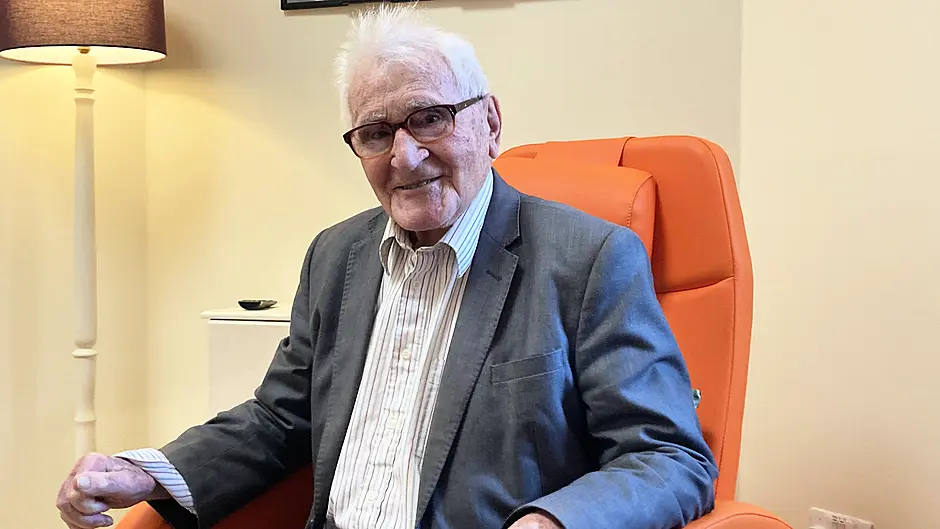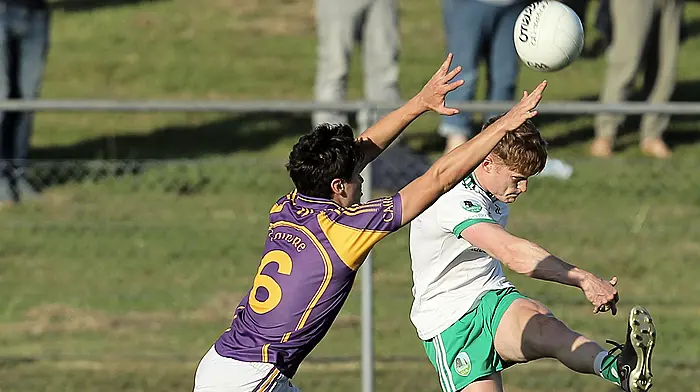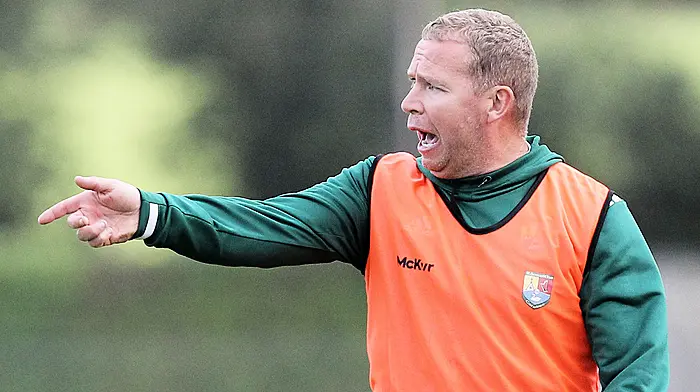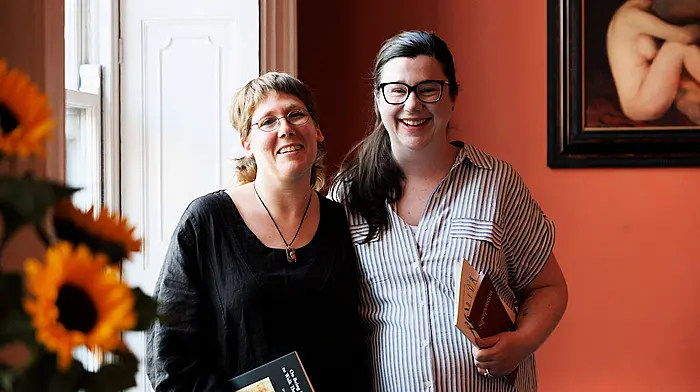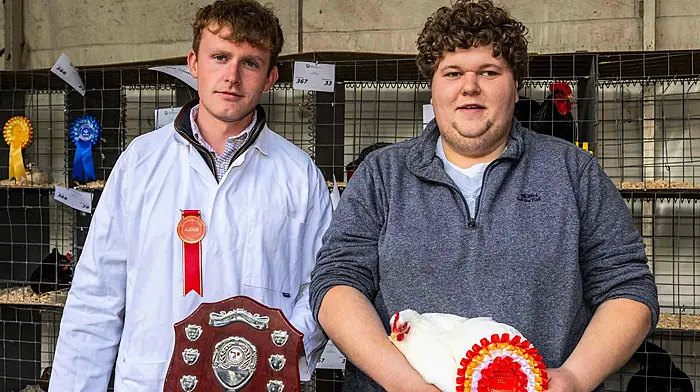Michael Harnedy recently celebrated turning 100 and revealed his ‘secret’ to being strong and healthy, and why he left the priesthood after 25 years ‘on the inside
WHAT is seldom is wonderful and finding a former priest – who is both happy and healthy at the age of 100 – offered a rare opportunity to ask direct questions of a man who is both an original thinker and a humourist.
On Wednesday, Michael Harnedy, a former priest with the Society of African Missions, celebrated his 100th birthday at Skibbereen Community Hospital – a place where good care, and a significant investment in the building and its services, have made it a warm and inviting place to visit.
Michael, who enjoys living there, walked into the meeting room in the hospital using a single cane. After a firm handshake, he settled into the large leather armchair and spoke to The Southern Star about some of the highlights of his life.
He brought to mind stories of his happy home life as one of nine children on the family farm at Cloughboola, just four miles outside of Skibbereen.
He spoke about his education at The Abbey national school in Skibbereen before going on to further education in Cork, Galway and County Down; his days as a teaching priest in Nigeria for about 25 years, as well as a stint teaching in Gaddafi’s Libya.
He also described his days after retiring back home to the family farm in the company of his late brother Jeremiah and his family.
Grace Harnedy, his sister-in-law, joined us for tea and biscuits in the meeting room at the hospital, as did her daughter Áine Harnedy, and her daughter, Síomha, a babe in arms.
One of the questions put to Michael was: how he came to be so strong and healthy at the age of 100.
‘Not a single stroke did I do to be like that,’ he said. ‘I lived an honest life without abusing myself, or anybody else either.’
His response offers an insight into the way he speaks – sentences that are unabashedly direct. To some they could sound acerbic but are actually straight-as-a-dye pronouncements, obfuscated only by his undiminished sense of humour.
Michael was also asked about God. ‘God is strong to me,’ he said. ‘I believe in God. I believe he has personal care for each one of us.
‘Sometimes, I’d love to get talking to him and ask him: “Why did you make us this way? Why did you make us that way? And why did you put in all those weaknesses that are inbuilt in us?”
‘God, he is strong in my religion. He is strong in my way of life. In the direction of my life,’ he added.
Michael said that he doesn’t pray in the traditional way. ‘I don’t go down on my knees and say the rosary and all that kind of thing, but I do pray every day,’ he said.
‘A lot of praying is not only a waste of time but wrong,’ he added. ‘I do it in passing, in working. I believe very strongly that our working, our walking and talking – and even our disputing – that should be our prayer.’
That, he said, is the way to be ‘strong and good – that is the way our nation should be operating.’
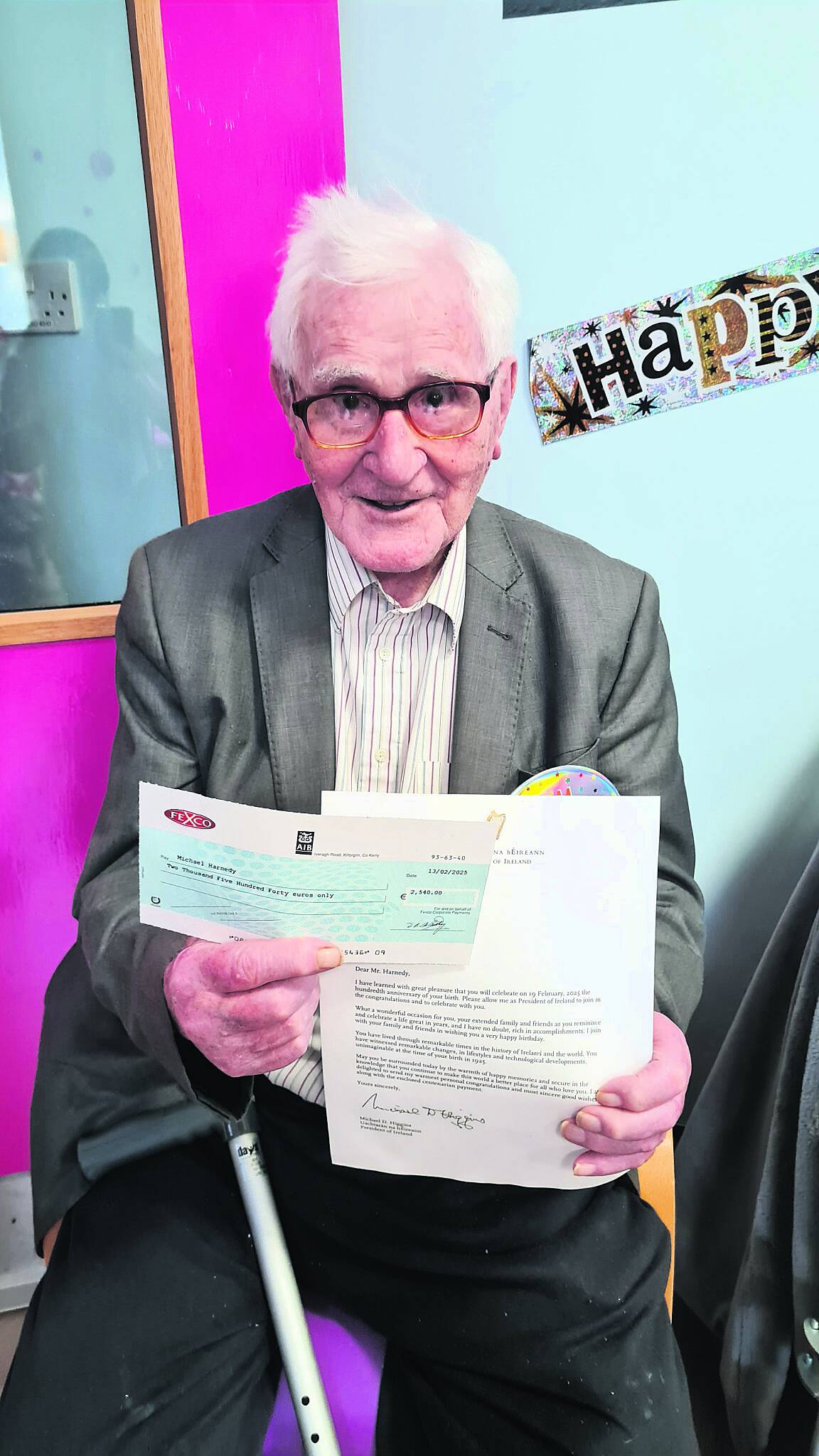 Michael with his cheque and letter from President Michael D Higgins. (Photo: Anne Minihane)
Michael with his cheque and letter from President Michael D Higgins. (Photo: Anne Minihane)
Despite leaving the priesthood after more than 25 years because of his belief that ‘the celibacy imposition on the clergy is a grave mistake’ – Michael still holds that there is ‘a role for priests to direct various civic behaviour’.
Michael explained: ‘I didn’t see any sense in celibacy. Celibacy is not a bad word, but celibacy abused is a bad thing. I thought it was terribly unfair and a difficult imposition to put on people. That’s why I left.’
He said he did have a love interest but explained: ‘By the time I came to make actual, practical decisions it was far too late. By then I was 50-something years.
‘Most of the others felt the same way but they didn’t take the move. They didn’t make the jump for freedom.
During his time in Nigeria, he continued to be a teacher with the SMAs and described his relationship with the order as ‘friendly – all the time. That was a period of complete freedom,’ he added. ‘There was no bad feeling whatsoever as a result of my leaving.’
It was at the beginning of his story, as a young boy, that Michael was rewarded with a loud guffaw when he revealed that it was before entering secondary school that he got ‘kidnapped’.
‘My mother had a vocation and that settled that,’ Michael said by way of explanation as to how he ended up at a SMA secondary school in Ballinafad.
‘They spent seven or eight years making a priest of me,’ Michael said of his time at secondary school at the SMA secondary school in Wilton.
He did his BA at Galway university before going to the SMA seminary in Dromantine, County Down, where he spent four years studying theology for the priesthood.
After doing his H-Dip at UCC, Michael went to Nigeria. And it was during his 25-years in the country that he became principal of the teacher training college.
Of that time, he said: ‘While I worked there as a priest, I was very happy. And when I worked there as a layman I was still very happy. I really loved it because I knew what I was doing.’
Michael described Nigeria as being ‘number one in Africa because it was very progressive’. But things changed after the Nigerian Civil
War.
 Michael with his sister-in-law Grace Harnedy.
Michael with his sister-in-law Grace Harnedy.
During the turmoil Michael played a key role in safely transporting about 100 co-ed students and 15 members of staff, including three Irish, to safety.
Afterwards, he continued to teach with the SMA order, including some time in Libya.
Regular visits home for holidays made Michael’s transition into retirement at the family home.
‘I suppose I was a gardener,’ he said. ‘I spent my time out on the land: setting potatoes. And I started an orchard.’
Michael recalls setting corn and carrots too, any chore really that would keep him active, including cooking.
This approach to life, Michael described as ‘being happy with whatever situation I find myself in’.
That, for a theologian, is as good a philosophy as any. And at 100, he said: ‘I have no complaint with God or man.’

